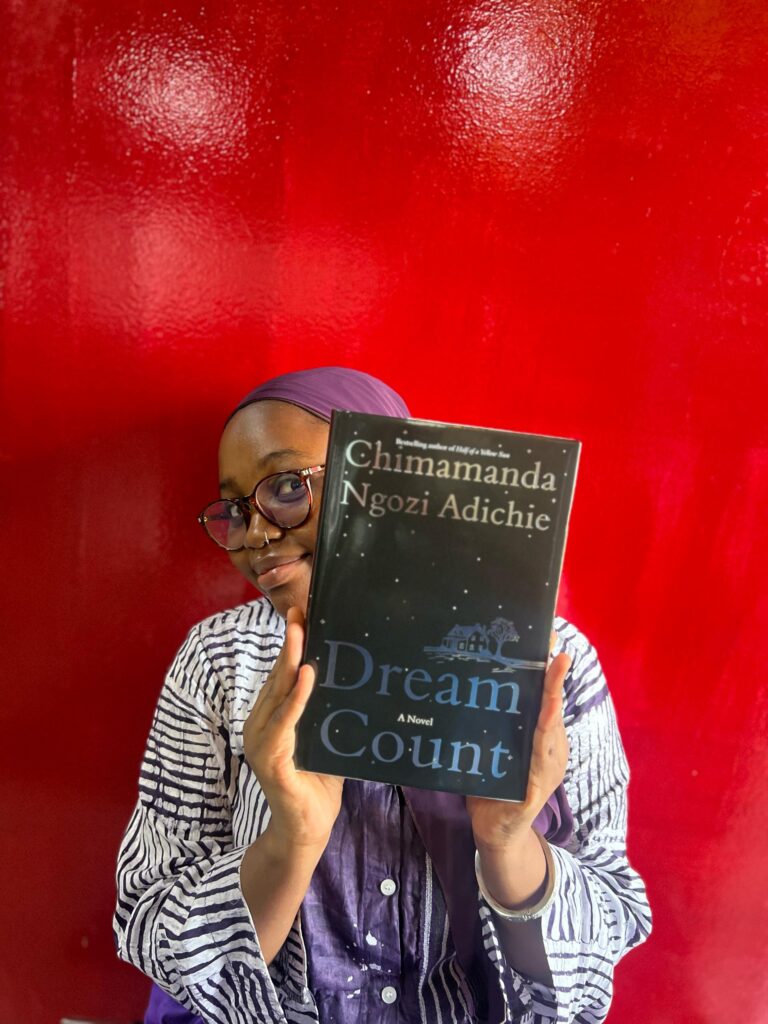Chimamanda Ngozi Adichie’s captivating novel, Dream Count, delves into social commentary while intertwining it with profound personal narratives. Through the lives of four women, the novel explores their loves, longings, and desires, offering readers a unique lens to examine intricate themes such as identity, morality, academics, governance, and the core of humanity. The narrative unfolds in alternating chapters, introducing readers to Chiamaka, a Nigerian travel writer grappling with despair as she finds herself trapped in America during the pandemic; her friend Zikora, a successful lawyer; her cousin Omelogor, a finance professional pursuing graduate studies in the States; and Chiamaka’s housekeeper, Kadiatou.
Among the tapestry of characters that adorn the novel, one particularly compelling figure captured my attention: Omelogor, Chiamaka’s fearless and outspoken cousin. Omelogor is a powerhouse, navigating the murky waters of Nigeria’s financial sector, where corruption and power dynamics interlace. After seeing the “putrid center of Nigeria finance and its oozing pus”, a vivid metaphor for the endemic corruption. Omelogor finds herself inadvertently drawn into the web of money laundering. Her boss, the CEO, involves her in schemes that involve issuing advance payment guarantees for government contracts inflated by up to 400%. The surplus is funneled into secret accounts linked to the governor, often disguised under the names of family members, domestic staff, or shell companies registered abroad.
What makes Omelogor’s journey captivating is her moral dilemma. Despite being part of these schemes, she uses some of the illicitly obtained wealth to support women entrepreneurs in her village, illustrating a nuanced portrait of ethical conflict. Eventually, she quits, driven by an awareness that she has more to pursue in life than the hollow security of stolen wealth.

Omelogor’s life takes another turn when she decides to pursue a Master’s degree in Pornography abroad. Here, she faces a daunting reality: her boldness and inquisitive nature are met with resistance. Her classmates, predominantly white, avoid her because of her assertiveness; a behavior labeled as the rough voice of racism. Omelogor retires from pursuing what seems to be an empty dream and returns to the walls of her country where she has control over her own destiny. Alienated and introspective, she starts a vlog titled “Only for Men”, daringly asking a question often deemed taboo among Africans: “Where did you first learn about sex?”
As a reader and lover of fiction, I found Omelogor’s character relatable because she embodies the quintessential “Nigerian reality”, a life marked by moral contradictions and a society where one’s character is often judged not on facts but on societal stereotypes. Omelogor’s experiences resonate with the reality that morality is often viewed through a lens distorted by preconceived notions about class, gender, and power.

One of the most striking reflections the novel has forced me to ask prompts my curiosity: How did we learn about governance as Nigerians? Is it from the textbooks that preach democracy without context? Or from witnessing the effects of godfatherism, gender inequality, or inadequate infrastructure firsthand? Perhaps it is through personal experiences, like navigating bad roads, facing medical emergencies without insurance, or enduring Lagos traffic that costs job opportunities.
For those who are “fortunate” to Japa, it may be the realization that basic rights are not privileges. Dream Count challenges our understanding of governance and our passive acceptance of dysfunction. It encourages us to acknowledge our realities and take proactive steps to demand change.
In the end, Adichie’s work, much like Omelogor’s journey, challenges us to face our shared indifference and ask ourselves, “What actions will we take to address these issues?” It is not enough to simply recognize the problems.
